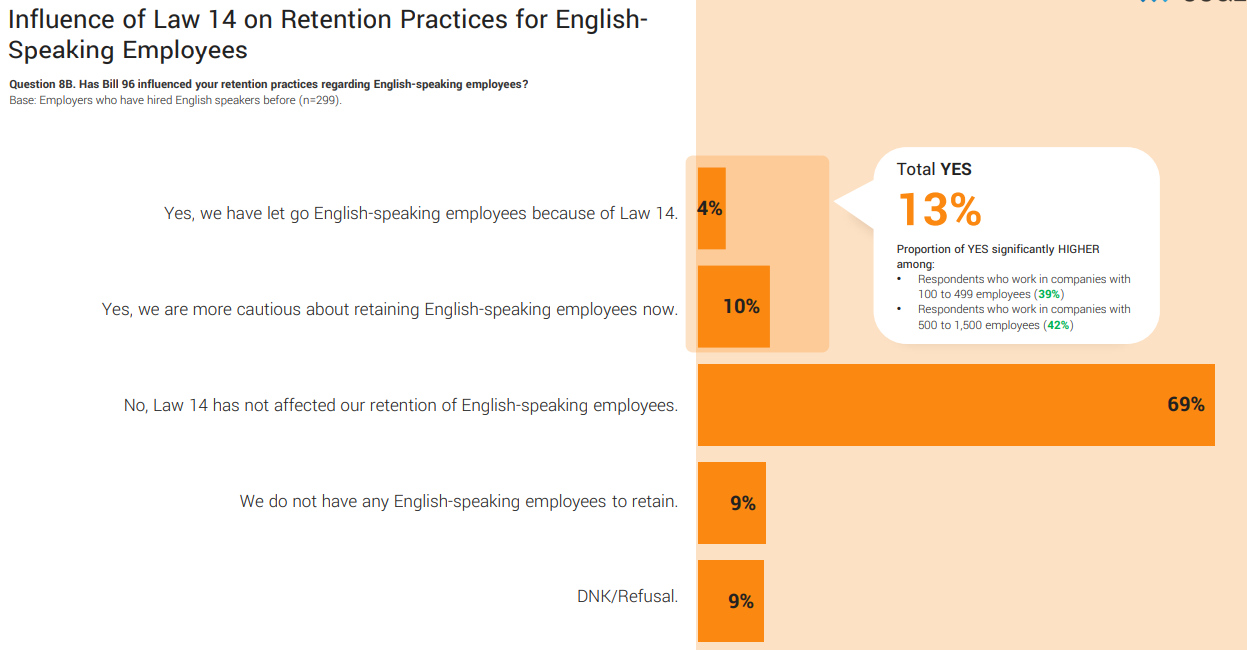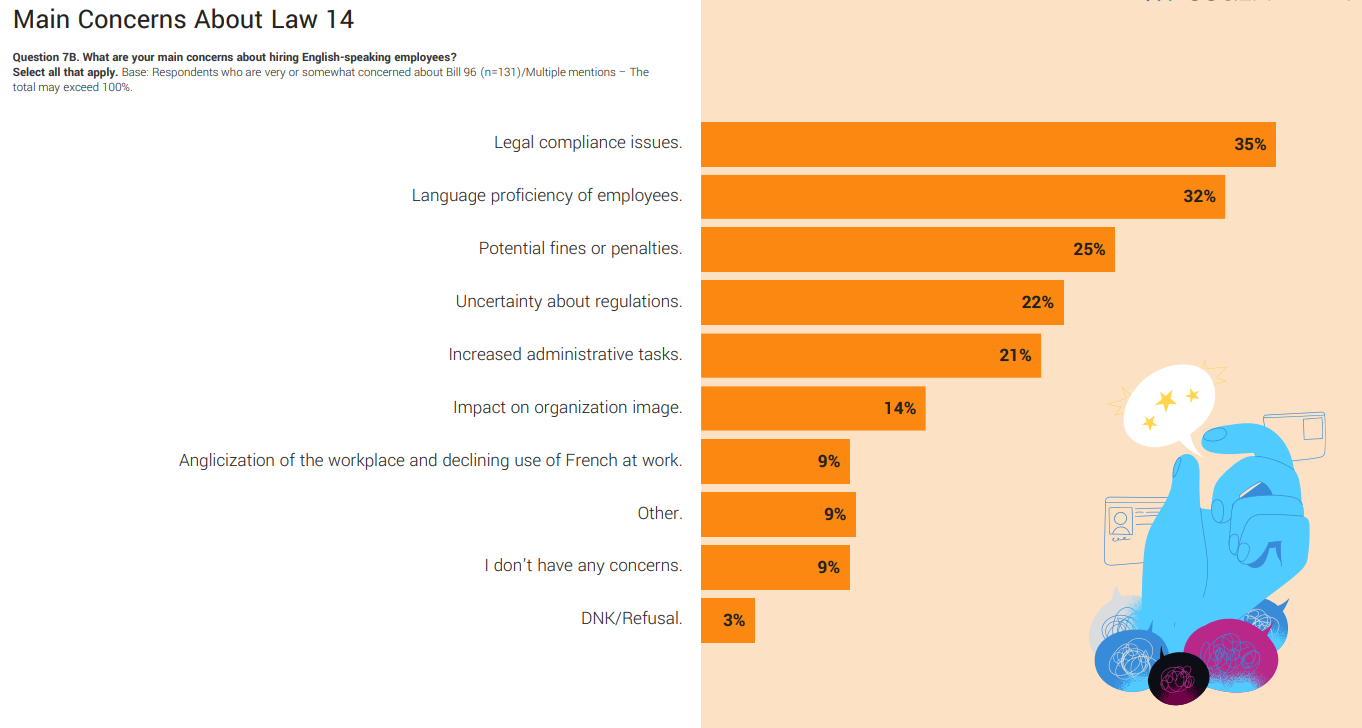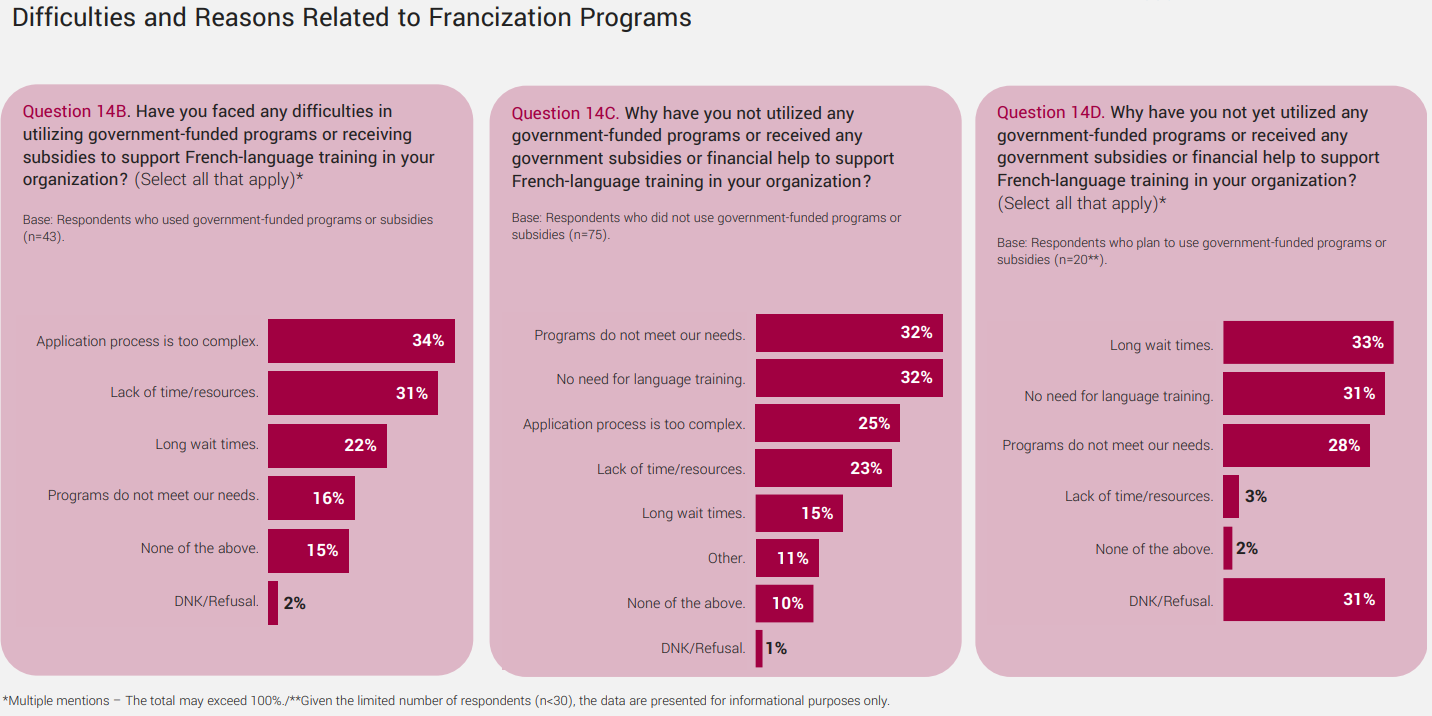
1 in 3 companies adjusting hiring practices for English-speaking candidates, with some stopping altogether

With Quebec’s Law 14 now in effect, many businesses in the province report seeing benefits in hiring French-speaking candidates, according to a new report.
Overall, 32% of employers have adjusted how they hire English-speaking candidates, according to the Comité consultatif des Québécoises et Québécois d'expression anglaise (CCQEA).
Among them, 14% have become more cautious, 10% have reduced such hires, and 8% have stopped hiring English-speaking employees altogether.
Additionally, 13% of employers have modified their retention practices, with some reporting that English-speaking staff have been let go as a direct result of the legislation.

This comes despite the fact that most employers in Quebec report positive outcomes when hiring English-speaking employees, according to the survey of over 500 Quebec employers.
A strong majority (86%) of employers who have hired English-speaking individuals report a positive experience, with 60% rating it as very positive. Conversely, only 2% characterised their experience as negative.
More than three-quarters (77%) of employers who have hired English-speaking employees report experiencing at least one benefit. The most frequently cited advantages include:
Quebec passed Bill 96,An Act respecting French, the official and common language of Québec in 2022—now known as Law 14. Under the legislation, any offer of employment, transfer or promotion by an employer must be drawn up in French. Also, French must be used in written communications, even after termination of the employment relationship, with staff or any association of workers representing staff. And any documents around conditions of employment, employment application forms and training must also be in French.
In 2023, the Quebec government set out deadlines for employers who must comply with new requirements to guarantee the use of French language in their workplaces.

"Employers need clarity and support in navigating these requirements. Right now, they're pulling back out of caution. That's a missed opportunity," says CCQEA President John Buck.
The CCQEA also notes that many Quebec employers face challenges in accessing government-funded francisation programs and subsidies.
Currently, only 10% of employers have implemented training programs or resources to help English-speaking employees learn French, with another 11% considering such initiatives.
The top reported challenges in implementing these programs include:
However, only 19% of employers are aware of these programs and subsidies, and just 25% of those have utilised them.

"These findings point to a disconnect between policy and employer realities. Some programs exist on paper, but more are clearly needed. Employers often aren't aware of those that do exist, or aren't sufficiently supported in implementing them," says Buck.
He concludes: "There's real potential for workforce growth that we're not realising. We're seeing signals of demand and willingness on both sides, but we currently risk sidelining qualified talent that could contribute meaningfully to Quebec's economy."
The use of the French language in the workplace has seen a decline as more Quebec workers incorporate English in their everyday lives, according to a previous report. In 2023, Quebec’s Premier Francois Legault introduced strict new requirements mandating nearly all immigrants to Quebec to be able to speak and write in French, according to a report from Radio Canada International (RCI), CBC/Radio-Canada's multilingual service.